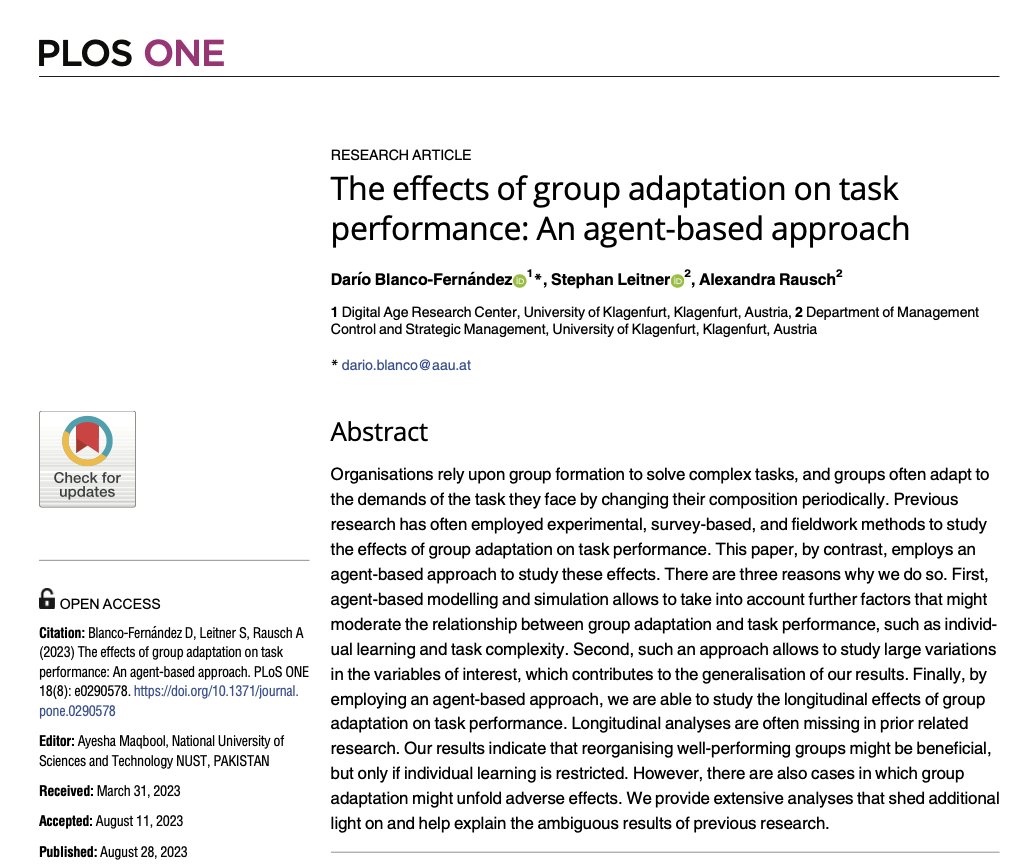I am excited to share with you a fresh perspective on group adaptation in organisations as we tackle a topic that has fascinated scholars and business leaders alike. Our latest research has just been published in PLoS ONE, and it offers a groundbreaking approach to understanding how groups change and adapt over time to meet the demands of complex tasks.
Abstract: Organisations rely upon group formation to solve complex tasks, and groups often adapt to the demands of the task they face by changing their composition periodically. Previous research has often employed experimental, survey-based, and fieldwork methods to study the effects of group adaptation on task performance. This paper, by contrast, employs an agent-based approach to study these effects. There are three reasons why we do so. First, agent-based modelling and simulation allows to take into account further factors that might moderate the relationship between group adaptation and task performance, such as individual learning and task complexity. Second, such an approach allows to study large variations in the variables of interest, which contributes to the generalisation of our results. Finally, by employing an agent-based approach, we are able to study the longitudinal effects of group adaptation on task performance. Longitudinal analyses are often missing in prior related research. Our results indicate that reorganising well-performing groups might be beneficial, but only if individual learning is restricted. However, there are also cases in which group adaptation might unfold adverse effects. We provide extensive analyses that shed additional light on and help explain the ambiguous results of previous research.
You can access the paper here: https://doi.org/10.1371/journal.pone.0290578
